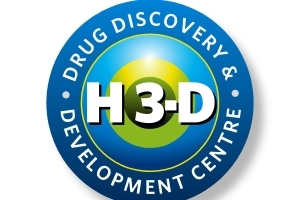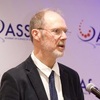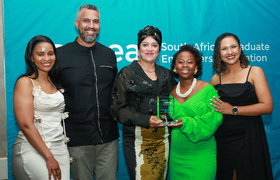H3-D in the news: New UCT collaboration to fight TB to benefit patients
02 May 2014 | Story by Newsroom
The H3-D Drug Discovery and Development Centre at the University of Cape Town (UCT) in South Africa and Celgene Global Health (CGH), a Division of Celgene Corporation, a global biopharmaceutical company that discovers, develops and delivers disease-altering medical innovation for patients in need with cancer and immunology and inflammatory diseases, have joined efforts to identify and to develop next-generation life-enhancing medicines for patients with tuberculosis (TB).
The main goal of this joint drug discovery programme, which was officially launched at the beginning of April 2014, is to identify novel drugs for the treatment of TB. Under the collaborative agreement, Celgene will provide H3-D with compounds that target TB, and H3-D scientists will optimise these compounds to deliver pre-clinical candidates suitable for testing in humans. The work will be funded by a grant from Celgene.
"This agreement is an accurate reflection of how Celgene lives its commitment to improving the lives of patients worldwide every day," said Dr Jerome B. Zeldis, CEO of Celgene Global Health. "We are very pleased to initiate the collaboration with H3-D so that new medicines for the treatment of TB might be developed." This is one of a number of strategic collaborations that CGH is establishing to address the urgent needs of patients who are affected by illnesses common to low income settings.
Working on a potential novel cure for TB is not the only benefit of this new relationship. The collaboration with H3-D will significantly enhance drug discovery and development capabilities in South Africa. It will help to create a new generation of drug discovery scientists by allowing the recruitment of international scientists with experience and local scientists to work side by side.
H3-D has the capabilities to attract the interest of large international biotechnology companies. Professor Kelly Chibale, Director of UCT's H3-D, said: "This collaboration with a major US biotech company reinforces the major steps that drug discovery has taken at UCT in the last couple of years, building on the success of the H3-D/Medicines for Malaria Venture (MMV) project. It endorses UCT as one of the top places in the world to do TB drug discovery."
This agreement is another significant step for H3-D. Together with its announced partnerships with the global healthcare company Novartis in 2013 and the Bill and Melinda Gates Foundation in 2014, the centre continues to grow drug discovery capabilities to identify clinical candidates for diseases relevant to Africa.
About UCT's H3-D
H3-D was founded at UCT in 2010 and officially opened its doors in April 2011, with the goal of creating the leading drug discovery and development platform in Africa. Under the scientific leadership of Professor Chibale, the group has been active in TB drug discovery for several years. It currently comprises 22 scientific staff members in the areas of medicinal chemistry, in vitro biology as well as Drug Metabolism and Pharmacokinetics. Located in Cape Town, South Africa, H3-D is the first drug discovery centre in Africa with an initial focus on TB and malaria, two top medical needs on the continent. Last year, the first compound developed by H3-D was approved by MMV as a clinical anti-malarial candidate. H3-D has the necessary infrastructure to conduct integrated hit-to-lead and lead-optimisation TB projects. The centre works closely with the Molecular Mycobacteriology Research Unit at UCT under the leadership of Professor Valerie Mizrahi and Dr Digby Warner, as well as other groups around South Africa with TB expertise. In addition to scientific expertise, H3-D also has access to the UCT Clinical Research Centre (CRC) which is under the directorship of Professor Gregory Hussey. The CRC has capabilities for all phases of clinical development, including a recently established capability for Phase 1 first-in-man studies.
In addition to support from international pharmaceutical companies and philanthropic organisations, H3-D is supported by the South African government's Department of Science and Technology (DST) through the Technology Innovation Agency (TIA), as well as the country's Department of Trade and Industry (DTI) through the Technology and Human Resource for Industry Programme (THRIP). Professor Chibale is a full member of the Institute for Infectious Disease and Molecular Medicine (IDM) at UCT, and his research group is a South African Medical Research Council (MRC) extramural research unit at UCT.
About Celgene and Celgene Global Health
Celgene Corporation, headquartered in Summit, New Jersey, is an integrated global biopharmaceutical company engaged primarily in the discovery, development and commercialization of novel therapies for the treatment of cancer and inflammatory diseases through gene and protein regulation. Celgene Global Health (CGH), a Division of Celgene Corporation, collaborates with partners around the globe to find innovative solutions for healthcare challenges in the developing world. For more information, please visit www.celgene.com.
Media release issued by Pat Lucas, UCT Communication and Marketing Department. Email: pat.lucas@uct.ac.za
 This work is licensed under a Creative Commons Attribution-NoDerivatives 4.0 International License.
This work is licensed under a Creative Commons Attribution-NoDerivatives 4.0 International License.
Please view the republishing articles page for more information.










